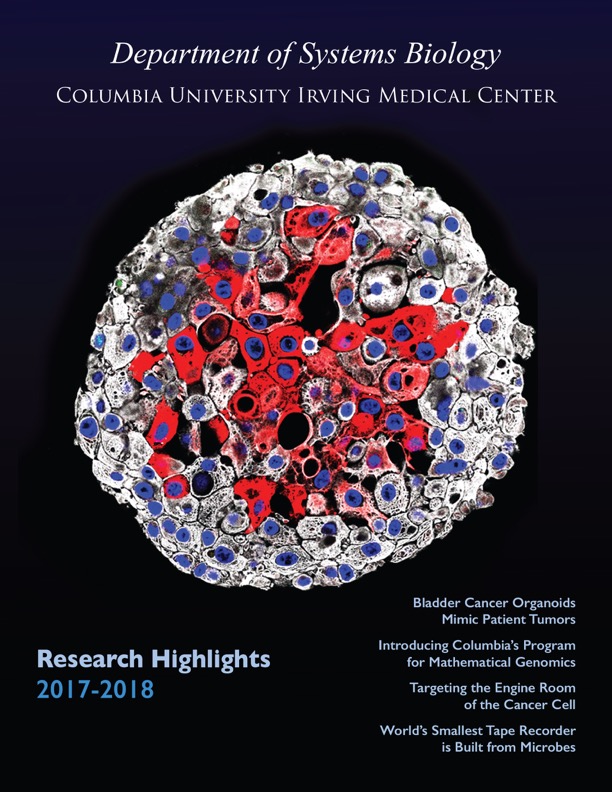Department Overview
The Columbia University Department of Systems Biology is an interdisciplinary program based in New York City whose goal is to advance the integration of quantitative and experimental research methods in the biological and biomedical sciences. With a faculty of more than two dozen members and onsite research infrastructure for high-performance computing, next-generation sequencing, and high-throughput screening, we conduct research to understand the behavior of complex biological networks and how small changes in those networks produce the diversity of life around us. We also provide graduate education and postdoctoral training to increase understanding of systems biology and promote its use in biological research.

Download a pdf of our 2018 brochure.
hi-resolution (9.1 MB)
Our research begins from the principle that physiologic and pathologic traits emerge from interactions within complex systems of genes, proteins, cells, epigenetic influences, and other factors. Our researchers use recent advances in technology both to develop models of these systems and to validate the accuracy of these models in the laboratory. We also develop software for the analysis of biological data, and make it available for use by other researchers around the world through a platform called geWorkbench.
Doing this work requires investigators with a wide range of interests. Our program includes specialists in molecular biology, genetics, computational biology and bioinformatics, structural biology, synthetic biology, mathematics, chemistry and chemical biology, physics, computer science, and other fields. The Department of Systems Biology supports basic science research in computational biophysics and structural biology, as well as the modeling of regulatory, signaling, and metabolic networks; pattern discovery and recognition; machine learning; and functional genomics. We also conduct research in disease-related areas such as cancer, infectious diseases, metabolic disorders, and neurodegenerative disease, as well as stem cell and regenerative medicine.
The Department of Systems Biology coordinates the activities of the Center for Computational Biology and Bioinformatics and the Columbia Genome Center. We are also the home of six centers of excellence, including the Center for Multiscale Analysis of Genomic and Cellular Networks (MAGNet), one of eight National Centers for Biomedical Computing and one of 12 interdisciplinary Centers for Cancer Systems Biology. By uniting Columbia’s computational expertise with capabilities in high-throughput experimentation and novel chemical synthesis, the Department of Systems Biology has developed an integrated model for twenty-first century biological research.